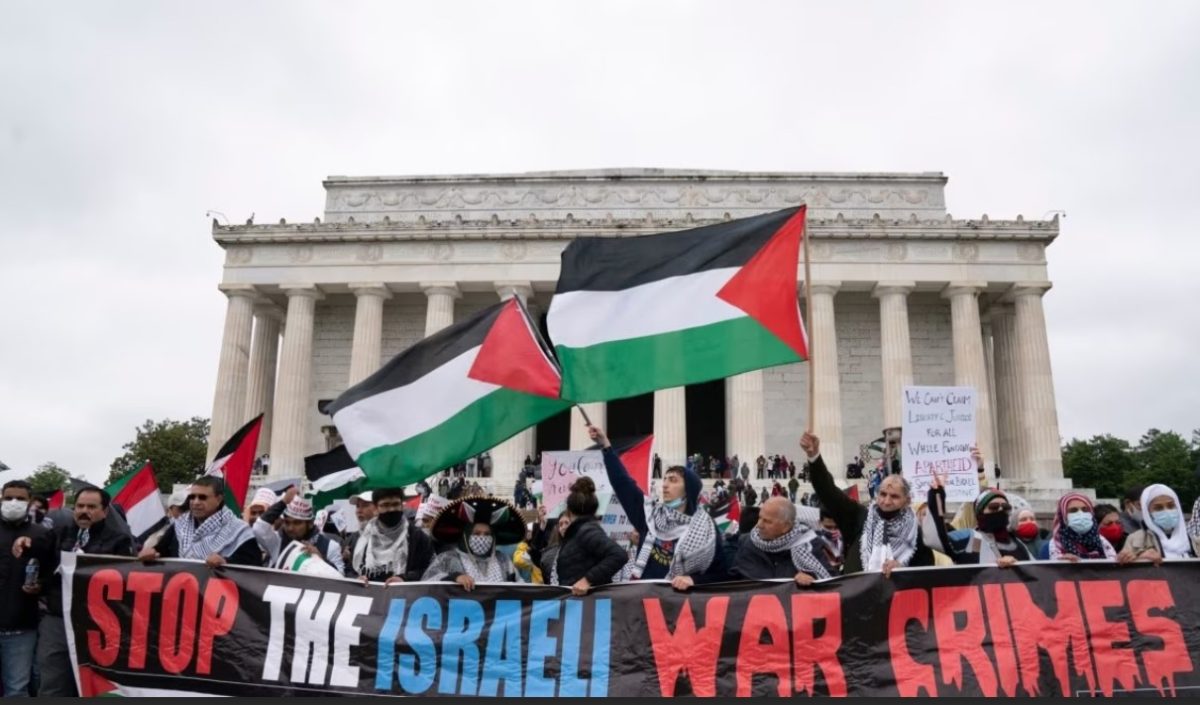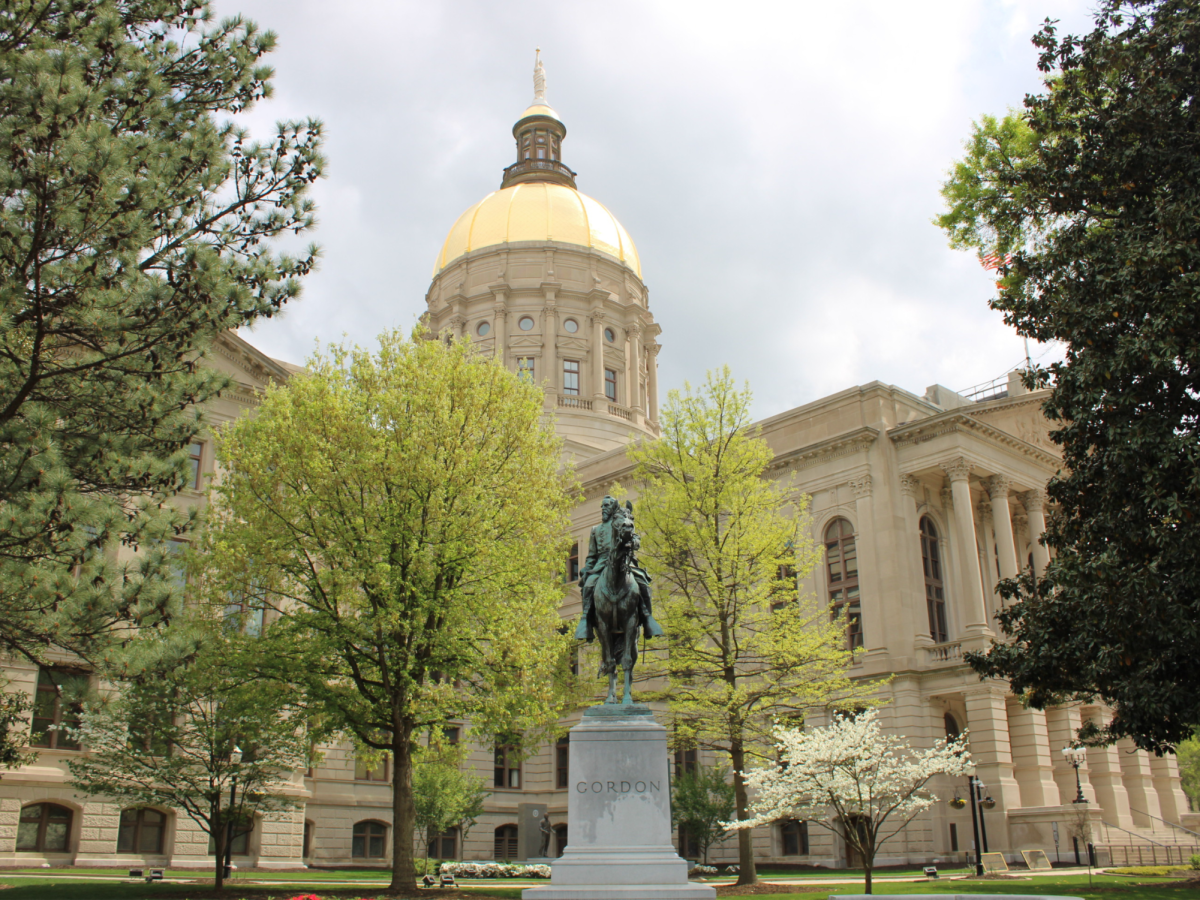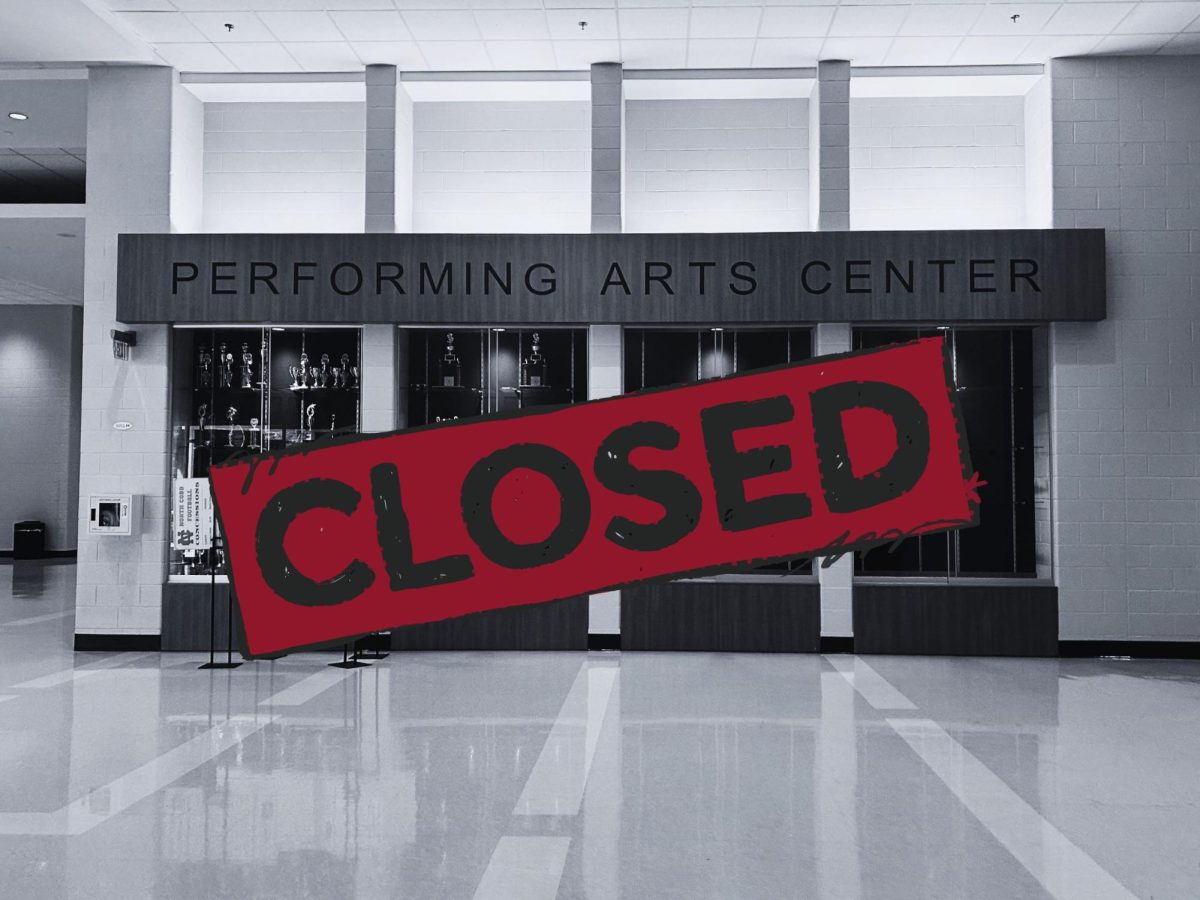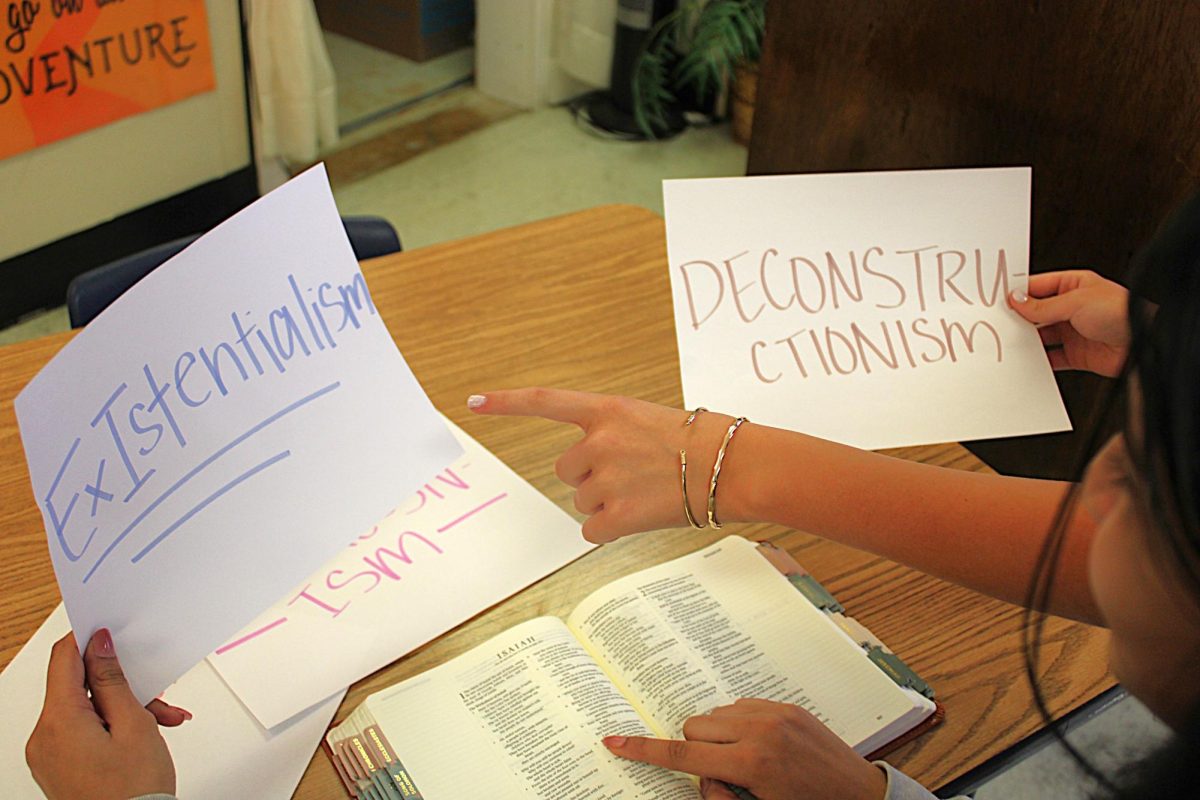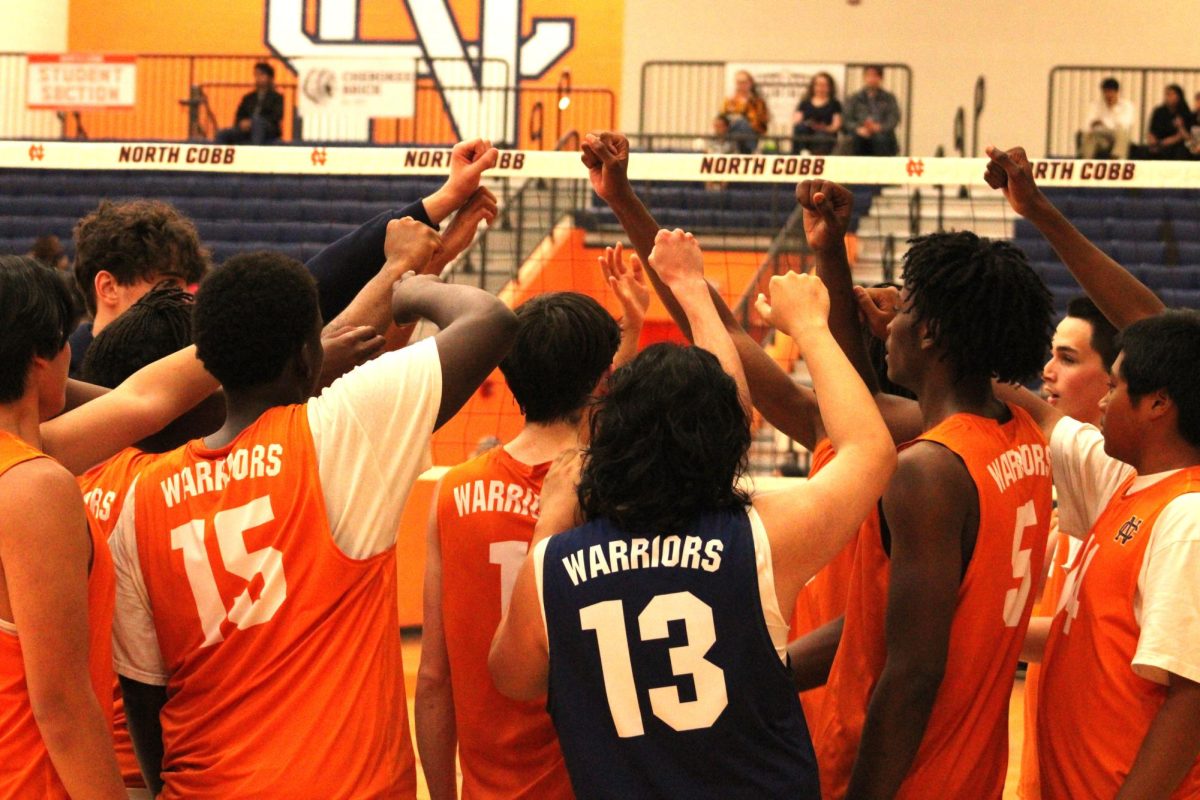October 7 marked the beginning of the Israel-Hamas conflict, leading to the death of thousands of individuals within the region as the battle continued. Since then, the conflict has resulted in an international rise in violence and hate related to the war miles away. Tensions stemming from the conflict have instilled fear in Jewish and Muslim communities across the US. Additionally, colleges have become the center of attention regarding their actions in handling an increase in anti-Muslim and antisemitic incidents on their campuses.
The Anti-Defamation League (ADL) recorded 2,031 antisemitic incidents in the United States within two months after the conflict began. The ADL’s data also includes one fatality of a Jewish man that occurred during a confrontation between pro-Palestine and pro-Israel protestors. Similarly, anti-muslim instances have increased with the Council on American-Islamic Relations (CAIR) reporting 1,283 requests for help between October 7 and November 4. Both organizations cite a rise in these events from the same time period last year.
Two anti-Mulism attacks have gained worldwide attention with the FBI opening investigations of the events as hate crimes. In Chicago, a landlord stabbed 6-year-old Wadea Al Fayoume 26 times, resulting in his death. His mother also suffered stab wounds and sustained major injuries. Authorities have determined the family’s landlord, Joseph Czuba, targeted the victims due to their Muslim faith and the ongoing Israel-Hamas conflict. Before the stabbing, Czuba had expressed anger toward Fayoume’s mother for the events in Israel.
In Vermont, a gunman struck three Palestinian-American college students during their walk. The trio wore keffiyehs, a traditional Palestinian scarf, and held a conversation in English and Arabic, prompting speculation of the shooting as a potential hate crime. All of the victims survived but one who now remains paralyzed from the chest down.
Arab and Palestinian communities in highly-populated cities also face a rise in Islamophobia. In November, a viral video captured a former White House adviser under the Obama administration harassing a halal street food vendor in New York City. The video shows Stuart Seldowitz calling the street vendor “a terrorist” and ridiculing Islam. He also says “If we killed 4,000 Palestinian children, it wasn’t enough”. After the video’s release, Seldowitz faces hate crime, harassment and additional stalking charges.
Lawmakers’ comments on the conflict have faced heightened scrutiny. In October, Michigan Democratic Representative Rashia Tlaib faced backlash for her comments in support of Palestine. Tlaib, the only Palestinian-American member of Congress, posted on X, using the phrase ”From the river to the sea” and referred to its meaning as an “aspirational call for freedom”. After her post, House Republicans and her Democratic colleagues criticized her use of the phrase, citing it as antisemitic rhetoric. Georgia Republican Representative Rich McCormick introduced a resolution to censure Tlaib’s comments, accusing her of promoting “false narratives” of the October 7 attack and calling for the “destruction of Israel”. The vote tallied up to 234-188, with 22 Democrats joining Republicans in favor of censuring their party colleague.
“I feel like the only Palestinian person in Congress being silenced is a representation of how the United States does not care about Palestinians at all and doesn’t want awareness to be brought to Palestinians and their suffering. This shows that the United States supports corruption and genocide,” magnet senior Sarah Abduallah said.
Following the beginning of the Israel-Hamas conflict, demonstrators began to protest on college campuses across the country. Additionally, reports of anti-muslim, anti-Arab and antisemitic hate crimes and incidents have risen on campsus in major U.S. cities. As a result, Congress called on multiple college presidents to testify over the rise of antisemitism on campuses and their response to the October 7 attack.
In November, Harvard University president Claudine Gay, Massachusetts Institute of Technology (MIT) president Sally Kornbluth and University of Pennsylvania president Elizabeth Magill testified before the House Committee on Education And the Workforce. The leaders of the nation’s top universities all defended their responses regarding the antisemitism on their campuses.
After their testimonies, the three presidents faced criticism from politicians and their own college students for their answers to the committee’s questions. During their testimony, New York republican representative Elise Stefanik asked the presidents whether students’ calls for the genocide of Jewish people violated the school’s code of conduct. Critics condemned the presidents’ responses, citing their indirect answer to the congresswoman’s question. Gay and Magill released statements shortly after their testimonies clarifying their stance on Stefinik’s questions. After continued backlash, Magill resigned as the University of Pennsylvania’s president only four days after her testimony before Congress. January 2, Gay resigned from her position after persistent condemnation of her response, resulting in Harvard’s short tenure of a president with her six-month term.
“I feel that it is unfortunate. As a Jew myself, I am a bit worried that when I go to college I will be met with a less-than-welcome response. I truly hope that one day, antisemitism won’t be as prevalent,” magnet senior William Mullinax said.
The White House has shown continuous support for Israel since the early days of the conflict. Additionally, the Biden Administration has continued to send aid to Israel for its military operations. According to a New York Times and Sienna poll, voters broadly disapprove of Biden’s lack of effort to call for a ceasefire and to assist civilians in Gaza. Individuals have voiced their dismay over Biden’s response to the conflict. January 8, President Joe Biden visited a South Carolina church, where protestors interrupted his speech, shouting for the president to push for a ceasefire.
With the uncertainty surrounding the conflict’s longevity, Palestinian, Arab and Jewish communities now grapple with the increase of discriminatory incidents. The words of prominent figures regarding the raging war have faced backlash from the public. Furthermore, as the date for the 2024 presidential election nears, the public’s disapproval of Biden’s support cast a shadow over his approval ratings.




